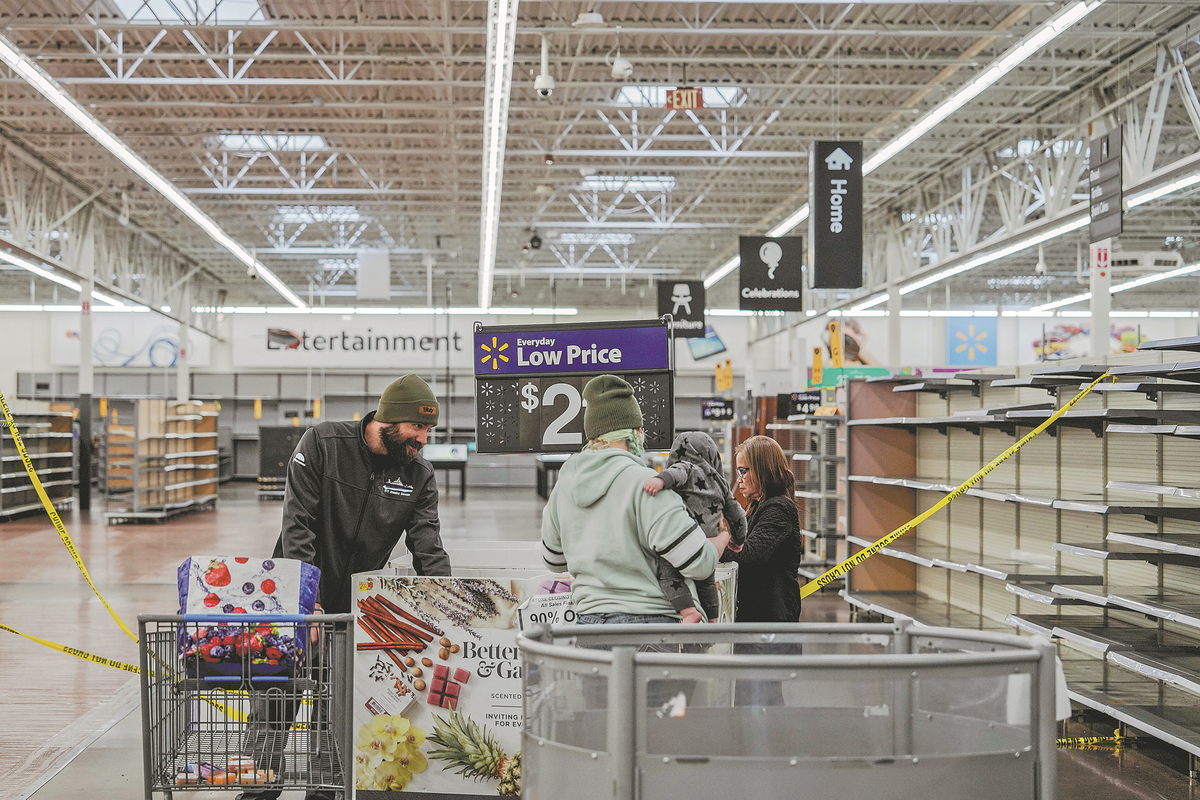Online shopping, high rents take a toll on US retail stores


Editor's note: As the retail sector in the United States suffers from various setbacks, including failure to fully reckon with the rise of online shopping, this page takes a close look at how the country's retailers are going through such a tough time amid a slowing economy.
Pandemic deals severe blow as 2,400 big-box outlets across country close
The aisles with big blue signs, lined with perfumed bath salts, floral sprays and bedding and home goods, offered Bed Bath & Beyond shoppers low prices on everyday essential items.
However, the retail store chain, established in New Jersey in 1971 and expanded to all 50 states, filed for bankruptcy in April. It planned to close all 400 stores by June 30. Some stores still remain open as they liquidate inventory.
The closures reverberated throughout the US retail sector, as Bed Bath & Beyond had been popular with customers in California, Texas, New Jersey and Florida. Yet, since late last year, signs of strain were there.
"Bed Bath& Beyond made a series of really bad mistakes," said Paula Rosenblum, co-founder of retail advisory company Retail Systems Research in Florida and a retail technology specialist with more than 20 years of experience.
"There was a lot more beyond than there was bed and bath. I have personal experience of this. They did not have what people wanted.
"The founders, before they retired, had a philosophy that we should never be out of the things that customers want. But they did not have very good merchandise," Rosenblum told China Daily.
Bed Bath & Beyond is among nearly 2,400 big-box, brick-and-mortar stores that used to be staples in malls around the country but will close, according to Business Insider.
Several other big names, including CVS Pharmacy, Nordstrom, Foot Locker, Gap, Whole Foods, Starbucks and Walgreens, all announced they will close underperforming locations that have fallen out of favor with shoppers looking for bargains.
Carol Spieckerman, a global retail analyst and president of consultancy company Spieckerman Retail in Arkansas, told China Daily: "The pandemic was a pressure test for all retailers, and it left some weakened. In the meantime, inflation, ongoing labor shortages, retail theft and other challenges haven't loosened their grip."
Some stores have lost customers to the convenience of online shopping. Between 2019 and 2021, amid the COVID-19 pandemic, at least 27.6 million people worked from home, according to data from the US Census Bureau. It led to more people shopping online.
E-commerce stores had 14.7 percent of all retail sales in the last quarter of 2022, the Census Bureau said. And the sector looks set to grow more, say analysts.
But "online shopping won't replace stores", Spieckerman said. "In fact, retailers like Walmart have proved that stores are a major benefit to their online businesses. A wave of digital innovation is set to launch in physical stores that will make brick and mortar shopping far more engaging."
Now, three years after the outbreak of the pandemic and as some employees return to offices, the fallout from workers not shopping for years in areas near their workplaces has been laid bare.
Nicholas Bloom, a Stanford University economist, found the amount of money that an office worker spent in downtown areas dropped by around $2,000 to $4,600 per year.
CVS Health, which often has pharmacies located near office buildings, said in 2021 that it would close 900 stores nationwide up until 2024.
Another big chain store, Target, said it will close four locations in areas that used to get foot traffic from office workers. Two locations are in Washington, one in Philadelphia, and one in Minneapolis. However, it will open 20 new stores in other areas to "reach new guests", the company said.
The company plans to invest $4 billion to $5 billion this year to expand guest-centric services, operations and its digital experiences.
On the plus side, Rosenblum believes that Walmart and Target have made the biggest strides with "buy online and pick up at the curb, or buy online and pick up in the store".
As people leave the confines of home for work, consumers are buying less clothes and fewer home goods, research by Jonathan Bowles from the Center for an Urban Future showed.
Gap, a casual clothing brand, announced in 2021 that it will close 350 of its Banana Republic and Gap stores this year. Last year, Gap had 912 stores; it will have 866 by the end of this year.
In March, Foot Locker, which sells sneakers and sports apparel, said it planned to close 420 stores by 2026. It also plans to shut 125 Champs Sports locations. Instead, it will open 300 smaller stores.
From 2019 to 2021, the lack of shoppers in downtown areas led San Francisco to lose 6 percent of retail stores, according to the JPMorgan Chase Institute.


















